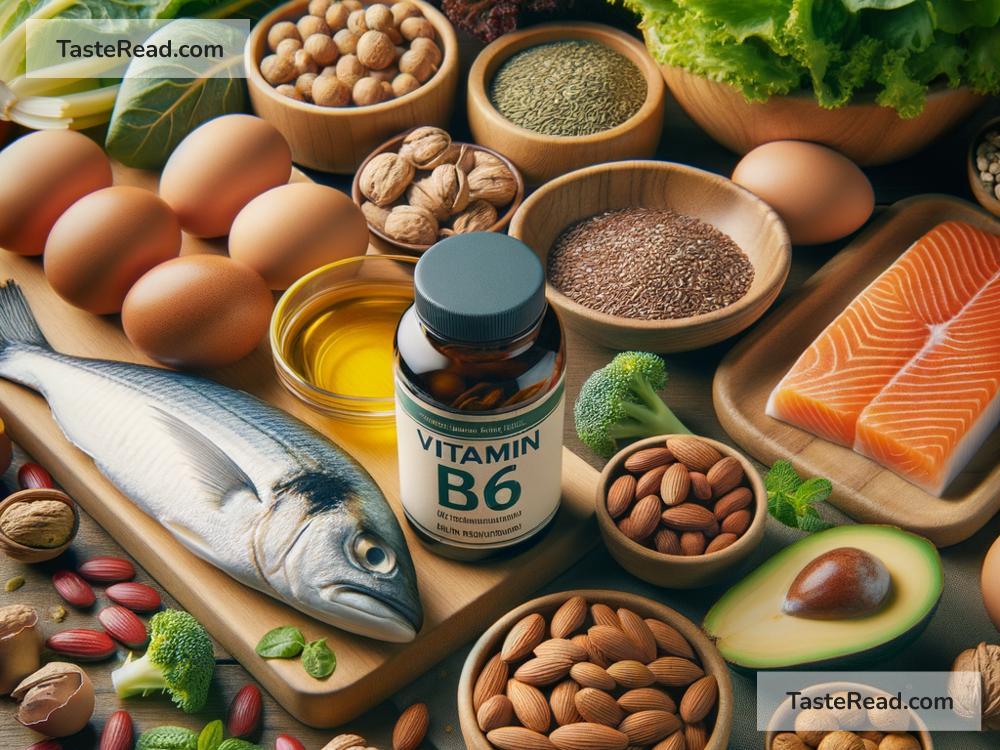The Role of Vitamin B56 in Metabolic Health
Vitamins are essential nutrients that play a significant role in keeping our bodies healthy. Among these, the B vitamins are particularly well-known for their contributions to energy production and overall metabolic health. While most people recognize common B vitamins like B12 and B6, you might be wondering, “What is Vitamin B56?” Is it a new discovery? Or just another name for an existing nutrient?
Let’s dive into what Vitamin B56 is (spoiler alert: it’s a fictional vitamin!) while exploring how real B vitamins contribute to metabolic health in a way that’s simple and easy to understand.
First Things First: What Is Vitamin B56?
Vitamin B56 doesn’t actually exist! It’s not part of the science-backed list of essential vitamins our bodies need to thrive. However, people sometimes make up terms like Vitamin B56—for fun or to spark curiosity—in conversations about health and wellness. Since we’re discussing the topic, it’s a great opportunity to talk about real B vitamins and how they help your metabolism work smoothly.
What Are B Vitamins?
B vitamins are a group of eight essential nutrients that work together in the body. These include:
- Vitamin B1 (Thiamine)
- Vitamin B2 (Riboflavin)
- Vitamin B3 (Niacin)
- Vitamin B5 (Pantothenic Acid)
- Vitamin B6 (Pyridoxine)
- Vitamin B7 (Biotin)
- Vitamin B9 (Folate/ Folic Acid)
- Vitamin B12 (Cobalamin)
Each B vitamin has a unique function, but they all contribute to metabolic health. Metabolism refers to the chemical processes in your body that convert food into energy and help maintain important functions like breathing, blood circulation, and repairing cells.
How Do B Vitamins Influence Metabolic Health?
All B vitamins play a role in helping the body process food into energy, but let’s highlight some key players:
-
Vitamin B6:
Known as pyridoxine, Vitamin B6 helps the body break down proteins, carbohydrates, and fats from food. It also plays a role in maintaining healthy blood sugar levels and producing neurotransmitters, which are chemicals that carry signals in your brain. -
Vitamin B12:
Vitamin B12 is critical for energy production, red blood cell formation, and DNA synthesis. Without enough B12, people can feel fatigued, weak, or even experience nerve problems. -
Vitamin B1 (Thiamine):
This vitamin kickstarts the process of turning carbohydrates into energy. It’s important for nerves, muscles, and healthy brain function. -
Vitamin B3 (Niacin):
Niacin helps enzymes in the body produce energy and supports healthy skin, digestion, and nerve function. -
Vitamin B7 (Biotin):
Often celebrated for promoting healthy hair and nails, Biotin also helps break down fats and carbohydrates during digestion.
What Happens If You Don’t Get Enough B Vitamins?
Without sufficient B vitamins, your metabolism might slow down, making it harder for your body to convert food into energy effectively. This can lead to feelings of fatigue, weakness, and brain fog. In severe cases, vitamin deficiencies can cause health problems, such as anemia (low levels of healthy red blood cells), depression, or nerve damage.
For example:
– A lack of Vitamin B12 can lead to a condition called pernicious anemia, where the body struggles to make enough red blood cells.
– Without enough Vitamin B6, the nervous system may not work properly and blood sugar levels can become more challenging to regulate.
How Can You Get Enough B Vitamins?
Since your body doesn’t store most B vitamins for long, it’s important to eat foods that contain them regularly. Fortunately, there are many delicious and healthy options that are rich in B vitamins:
- Vitamin B12: Found in animal products like meat, fish, dairy, and eggs. If you’re vegetarian or vegan, fortified cereals and plant-based milk can help.
- Vitamin B6: Present in foods like chicken, bananas, potatoes, and nuts.
- Folate (B9): Found in leafy green vegetables like spinach, as well as beans and citrus fruits.
- Thiamine (B1): Common in whole grains, legumes, and seeds.
- Niacin (B3): Found in peanuts, poultry, and whole wheat bread.
For people who struggle to get enough B vitamins through diet alone, multivitamins or B-complex supplements can be a helpful option. Always consult with a healthcare provider before adding supplements to your routine.
Conclusion: The Real Heroes of Metabolic Health
While Vitamin B56 isn’t real, the role of B vitamins in supporting metabolic health is undeniable. Together, these nutrients help you convert your food into the energy you need to thrive. They also support healthy digestion, brain function, and even your mood.
By eating a balanced diet rich in whole foods—like fruits, vegetables, whole grains, lean proteins, and dairy—you’re likely to get enough B vitamins to keep your metabolism running smoothly. So, next time you hear quirky terms like Vitamin B56, remember that the real stars are the essential B vitamins working hard behind the scenes!


